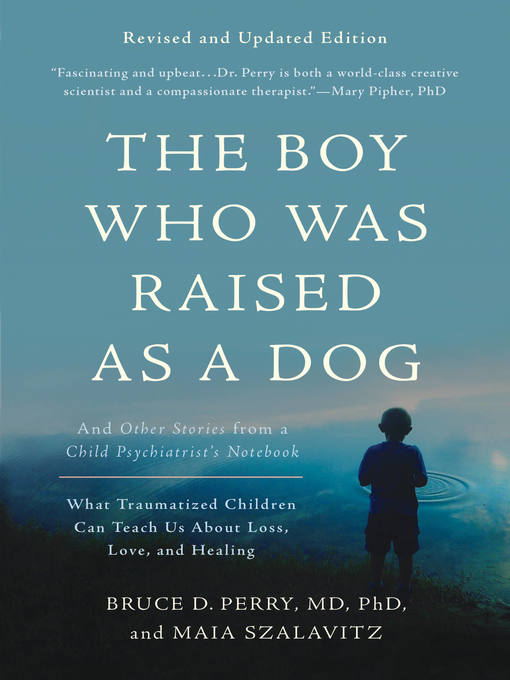
The Boy Who Was Raised as a Dog
And Other Stories from a Child Psychiatrist's Notebook - What Traumatized Children Can Teach Us About Loss, Love, and Healing
کتاب های مرتبط
- اطلاعات
- نقد و بررسی
- دیدگاه کاربران
نقد و بررسی

October 16, 2006
In beautifully written, fascinating accounts of experiences working with emotionally stunted and traumatized children, child psychiatrist Perry educates readers about how early-life stress and violence affects the developing brain. He offers simple yet vivid illustrations of the stress response and the brain's mechanisms with facts and images that crystallize in the mind without being too detailed or confusing. The stories exhibit compassion, understanding and hope as Perry paints detailed, humane pictures of patients who have experienced violence, sexual abuse or neglect, and Perry invites the reader on his own journey to understanding how the developing child's brain works. He learns that to facilitate recovery, the loss of control and powerlessness felt by a child during a traumatic experience must be counteracted. Recovery requires that the patient be "in charge of key aspects of the therapeutic interaction." He emphasizes that the brain of a traumatized child can be remolded with patterned, repetitive experiences in a safe environment. Most importantly, as such trauma involves the shattering of human connections, "lasting, caring connections to others" are irreplaceable in healing; medications and therapy alone cannot do the job. "Relationships are the agents of change and the most powerful therapy is human love," Perry concludes.

Starred review from January 1, 2007
Child psychiatrist Perry and journalist Szalavitz collaborate well in this meditation on what is known about brain function in deprivation and healing. Although he prescribes some medication to help his young patients, Perry's bedrock is listening well, recognizing cues, and relying on the power of trusting relationships. He reports on his experience working with the children who escaped from the Branch Davidian enclave in Waco, TX, as well as kids who witnessed or committed murder and who suffered in orphanages or were raised like animals. It takes a courageous healer to take on these travails, and Perry is unusually well suited to the task. Readable, informative about the workings of language, memory, trust, and choice, and ultimately optimisticwhile critical of a society that exudes violence and ignores preventionthis book demands and deserves attention from parents, educators, policymakers, courts, and therapists. Highly recommended. E. James Lieberman, formerly with George Washington Univ. Sch. of Medicine, Washington, DC
Copyright 2007 Library Journal, LLC Used with permission.

January 1, 2007
Although many parents fret over how to raise a more academically and financially successful child, Perry has learned a thing or two about how not to raise a prospective sociopath. Here he shares the stories of several children he has encountered in his decades as a child psychiatrist and expert on childhood trauma. Each child, from the seven-year-old who offered him sexual favors to the eponymous boy who spent his early years living in a dog cage, taught Perry something about the effects of early childhood trauma on brain development. His discoveries contradict the formerly held precept that children are emotionally resilient and will outgrow insults to their psyches. On the contrary, he says, severe and occasionally even not-so-severe emotional or physical abuse can chemically alter early brain development, resulting later in the inability to make appropriate, socially sanctioned behavioral decisions. Perry doesn't promote what he calls the "abuse excuse" for antisocial or criminal behavior; rather, he makes a powerful case for early intervention for disruptive children to prevent adult sociopathy.(Reprinted with permission of Booklist, copyright 2007, American Library Association.)

























دیدگاه کاربران